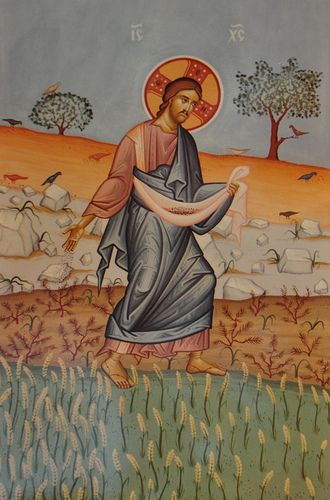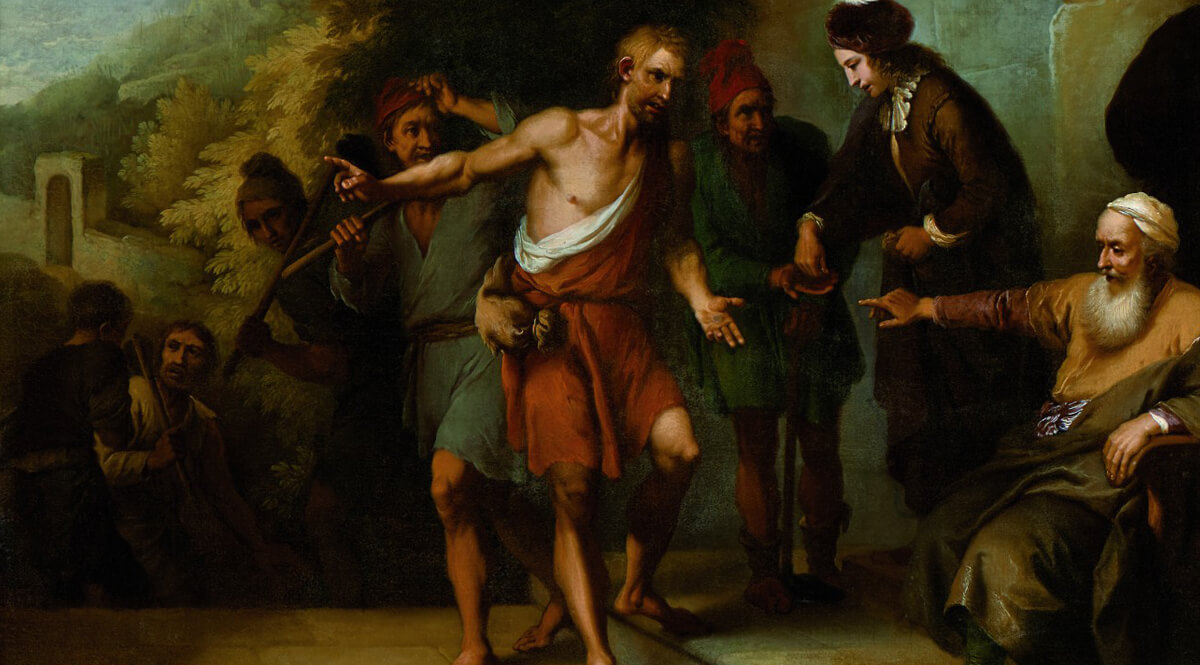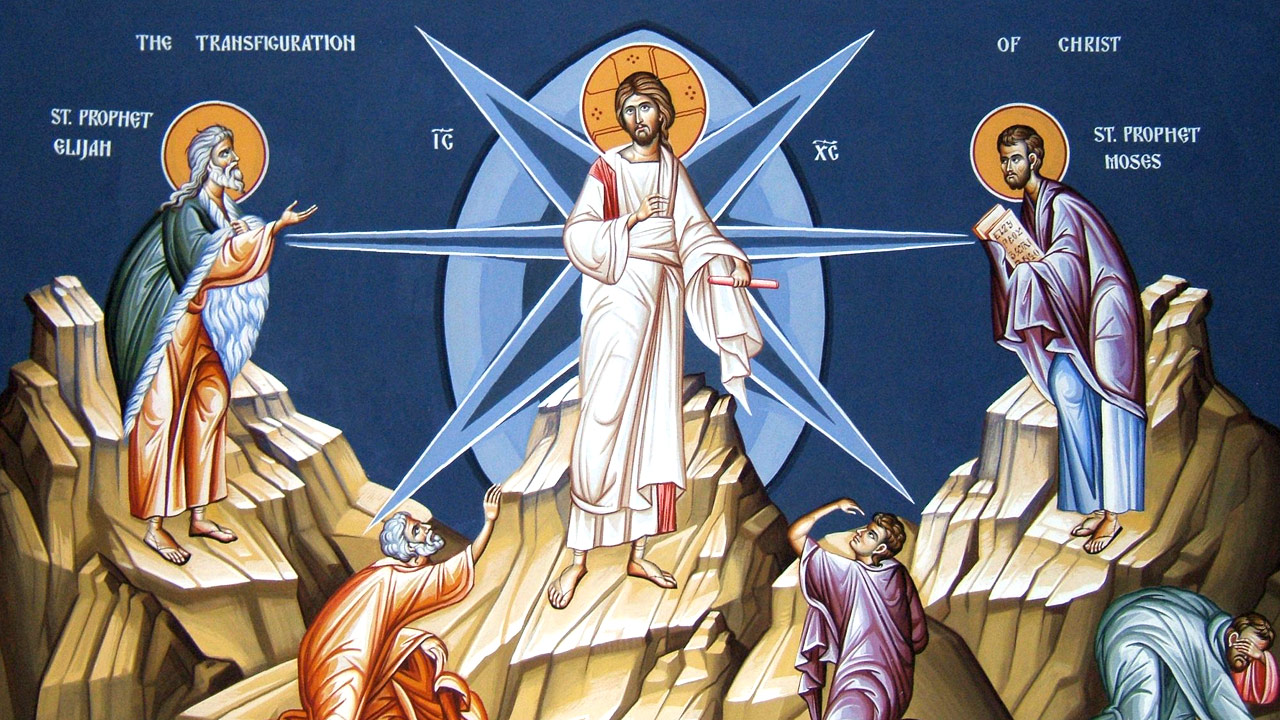"I'll believe it when I see it." That's the common refrain to outlandish claims. It's also the common response to the Word of God. Jesus doesn't use complicated language or big words. He speaks plainly, "See, we are going up to Jerusalem, and everything that is written about the Son of Man by the prophets will be accomplished. For he will be delivered over to the Gentiles and will be mocked and shamefully treated and spit upon. And after flogging him they will kill him, and on the third day he will rise." There wasn't cotton in the disciples' ears. Yet they couldn't understand what Jesus was talking about.
Later they would. After Jesus' resurrection they recalled what Jesus said and understood that he fulfilled Scripture by dying on the cross and rising from the dead. Yet it was only after seeing that they believed. After his resurrection Jesus said to Thomas's unbelief, "Have you believed because you have seen me? Blessed are those who have not seen and yet have believed." (John 20:29)
But to believe without seeing is a tall order. How am I supposed to believe something without seeing it to be so? Well, we believe all sorts of things we don't see, but only if we find them reasonable. So we believe what we were taught in science class about atoms and cells and the layers of the earth even though we haven't seen these things with our own eyes. But when something seems far fetched, we say, "I'll believe it when I see it."
The disciples didn't believe Jesus, not simply, because they hadn't seen it, but because it was foolishness to them. Why should the man, who performed such great miracles let himself die in such a humiliating way? It makes no sense. So they wouldn't believe it. St. Paul writes, "The natural person does not accept the things of the Spirit of God, for they are folly to him, and he is not able to understand them because they are spiritually discerned." (1 Corinthians 2:14)
And so we are given a lesson on faith. Faith does not believe that which is reasonable. Faith doesn't depend on what it sees. Faith trusts the Word of God. And this faith is unnatural. It can only be received by the Holy Spirit through hearing the Word of God.
If the disciples would have closed their eyes to their paltry wisdom and listened to God's Word, they would have believed what Jesus said to them, "everything that is written about the Son of Man by the prophets will be accomplished." If they had faith they would accept that "the Lord sees not as man sees." God saw it fit that Jesus would suffer and die for all sins.
God is love. Love does not rejoice in wrong doing. So when mankind fell into sin, God hated sin. He could not simply accept it as something good. That would be to change his very nature. Yet out of love, God would not damn his entire creation. So he made the promise that the seed from the woman would crush the head of the serpent, yet his own heel would be bruised. This seed of the woman is Jesus Christ, the Son of Man. And throughout Scripture the prophets proclaimed that he would die for the sins of the world and rise from the dead.
It was necessary for Jesus to be delivered over to the Gentiles, to be mocked and shamefully treated, spit upon, flogged and killed. Jesus had to die. And he knew it. What is probably the strangest thing about Jesus' proclamation of his own death and resurrection is how matter of fact he is about it. He isn't concerned that it might happen. He doesn't dread it as a fearful probability. He declares it as the gospel truth. Jesus doesn't scurry away from what he was sent to do. He came to earth to die for sins. It is like that great Lenten hymn we will be singing in the next few weeks:
A Lamb goes uncomplaining forth, The guilt of sinners bearing
And, laden with the sins of earth, None else the burden sharing;
Goes patient on, grows weak and faint, to slaughter lead with out complaint,
That spotless life to offer,
He bears the stripes, the wounds, the lies, The mockery, and yet replies,
"All this I gladly suffer." (Paul Gerhardt, LSB 438).
Jesus willingly goes to the cross to die. He gladly fulfills what God spoke through the prophets, "Surely he has borne our griefs and carried our sorrows; yet we esteemed him stricken, smitten by God, and afflicted. But he was wounded for our transgressions; he was crushed for our iniquities; upon him was the chastisement that brought us peace, and with his stripes we are healed. All we like sheep have gone astray; we have turned- every one- to his own way; and the Lord has laid on him the iniquity of us all." (Isaiah 53:4-6)
Jesus did not insist on his own way, but he did the will of his Father. His death was not an accident, but the definite plan of the Holy Trinity from before the earth's creation. There were many times the Jews tried to murder Jesus, but he passed through the midst of them. Even when he was arrested in the garden he caused the crowd of armed thugs to fall to the ground with a word. Yet at the proper time Jesus surrendered himself willingly to suffering and death, out of love for his Father and for you, me, and all sinners.
When Jesus went to the cross to die and subsequently rose from the dead, he accomplished everything written about the Son of Man in Scripture. All Scripture speaks of Jesus and his work to save sinners. If you do not know of Jesus' cross, his suffering and death and his resurrection, then you do not know the Scriptures, regardless if you've read them. The whole purpose of Scripture is to point us to this event, where Jesus saved sinners from their sins.
The Scriptures tell us how God sees it. God sees that our sins justly damn us to hell and the only chance we've got is for Jesus Christ, true God and true man to suffer and die in our place. Scripture tells us this clearly. If Jesus does not die for us, then we are not saved. Yet, one does not understand this by his natural senses. You won't see how God sees with your natural eyes or your natural wisdom or reasoning. Rather, you see how God sees through faith. Faith does not get its knowledge from the worldly experience, but from the Word of God. Faith accepts what God's Word says, even if it contradicts what your own eyes and reason tell you. And faith trusts that God will do for you according to his Word.
Faith clings to Jesus' death and resurrection, because Scripture clearly tells us that it is only through Jesus' death that our sins are atoned for and only through his resurrection that we are given the assurance of forgiveness and eternal life. If your faith does not cling to Jesus' death and resurrection then your faith is false. Everything a Christian believes must center on Christ's death and resurrection. Your Baptism joins you to Christ's death and resurrection. You are forgiven for the sake of Christ's suffering and death. The Lord's Supper is the very fruit of the cross, given and shed for you. If Christ's passion and resurrection on the third day is not central to your faith, then all other parts of your faith will fall apart.
And so, in this Scripture lesson Jesus' twelve disciples are not great examples of the faith for us. We must not be like them, or we will doubt the very essence of our faith. Instead we should be like the blind man. This man can't even see, a sign to us that our natural senses do not produce true faith. Yet, he hears that Jesus is coming. He's heard of Jesus, his miracles and teachings and he concludes that this is the Christ promised in Scripture. Therefore he calls him, "Son of David!," the title of the Christ.
The blind man believes Jesus to be he whom Scripture promised. And with his faith he cries out for help. He begs and he does not let rebukes silence him. He cries to his Lord for help until his answer is given. When Jesus asks him what he desires, he tells him he wants his sight back, confident that Jesus can give it to him. And when Jesus speaks, "Recover your sight," the man believes it. And through faith he recovers his sight.
And so this blind man, much better than the twelve disciples, teaches us about faith. Faith focuses on the promise of God's Word and does not let the abuse of the world or the failure of natural senses deter it.
If we followed the example of the disciples in this lesson, we would not believe. We would doubt Christ's death and resurrection, because we have not seen it nor does our natural reason encourage us to accept it. Although we've been promise the resurrection of the dead with new bodies invulnerable to suffering, sickness, and death, our natural eyes tell us this is impossible. We see our loved ones pass from this life and we cannot tell where they have gone by our natural senses. We don't hear the angels sing and laugh with joy as we repent and as we hear the pastor forgive us for Christ's sake. The water still looks like plain water regardless of the word and so does the bread and wine look ordinary. If we look with the eyes of the disciples from this text this is where we would be left, without faith. Without hope. Without the love of God.
Yet following the example of this blind man, we crucify our reason, yes, even our eyes and we believe what we have heard from God's Word. We believe the promise God has given for the sake of Christ's suffering, death, and resurrection. And through faith we see as God sees. How God sees is really what matters. God sees that Jesus walked the road to Jerusalem, that he let himself be delivered over to the Gentiles to be mocked, spit upon, flogged, and killed. God sees that the blood of Jesus washed your sins away like a roaring river and silenced all accusations against you. God sees Jesus, with nail printed hands and feet, seated on his victorious throne declaring you innocent of all your sins. God sees you, his little lamb, washed clean, forgiven and loved, prepared by Christ to enter the kingdom of heaven. That is how God sees it. And only through faith focused on God's Word can you see this too. Amen.




 RSS Feed
RSS Feed